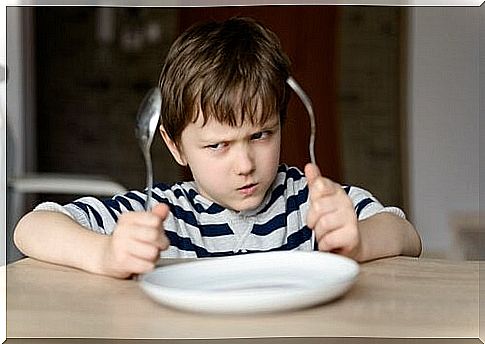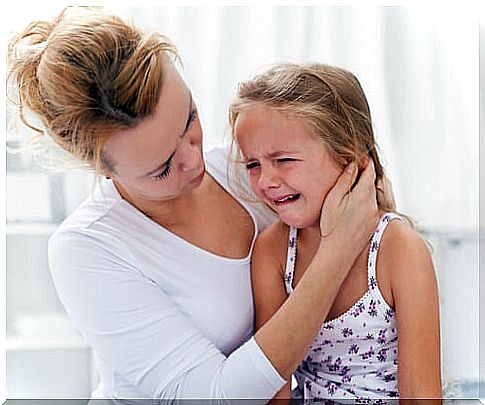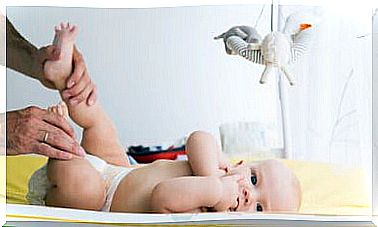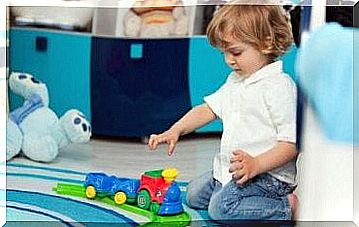Irritability In Children: What To Do In These Cases? – Being Parents

Most kids go through a stage where they get angry, cranky, and everything bothers them. Many times they are even unsure of the real cause of their bad mood. And, in other cases, they are unable to communicate it. Irritability in children: the phase that every parent wants to know how to deal with.
Whether through fits, tantrums, crying outbursts, or chronic bad moods, many children go through a stage in their lives – which can occur at different ages – in which everything seems to be going wrong. Especially those with whom they live the longest.
Depending on their age, stage of development, and family, social and personal context, this state of mind can manifest itself in different ways and be the result of different factors. This is why it is important for parents to be prepared to know how to react when these situations arise.

Causes of irritability in children
Irritability in children is difficult to diagnose, especially in those who cannot express the reasons for their anger. This is the case with babies, because they cannot speak, and children who do not know exactly what is causing them this discomfort. There can be physical or psychological causes. It can be circumstantial or extend over a period of time.
Here are the most common triggers for irritability in children:
- A disease: The child can be irritable if he has a headache, throat, stomach, ear, gums or molars. In these cases, you need to visit a pediatrician to diagnose the disease and prescribe the corresponding drug.
- Psychological factors: Family conflicts, trauma, academic and social pressures, depression, temporary grief and even disturbances in attention cause irritability in children. Also, being irritable can be a first sign of autism if accompanied by poor social interaction and a preference for loneliness. Professional assistance is also recommended to deal with these issues.
- Unsuitable Habits: Poor nutrition (such as caffeine consumption, for example), lack of sleep, or sensory overstimulation can be difficult for children. Therefore, they can irritate them.
- Developmental Changes: Many babies and toddlers get angry when their teeth come out. Later in life, growth spurts can cause joint discomfort and muscle discomfort. Likewise, the hormonal changes of puberty can also produce the same effect.
- Sudden changes in habits or routines: If adults are stressed by any big or small change we are facing, imagine what it can do in a child’s behavior and mood.
How to control irritability in children?
There is something important to keep in mind when a child shows signs of a bad mood and irritability. He’s like that because something is happening to him. No one becomes irritable just because they want to. If we could choose, we would all spend the day enjoying every moment, even more so when we are a child.
Here are some tips to keep in mind:
- Rule out the possibility that he has symptoms of an illness that could be causing his bad mood.
- Trying to make him have fun. Take him to the park to take his mind off his mind, whether he’s playing his favorite sport or playing outside.
- Talk to him so that he expresses his feelings. May he find in you a confidant with whom to find a way out of problems.

Additional tips for controlling irritability in children
- Let him detach himself from what bothers him. Dancing, playing an instrument, going for a walk, or playing something he enjoys can be the distraction needed to put aside the pain, angst, or anger that is stressing him out.
- Stay calm. If we respond to his anger with more anger, surely the outcome will not be positive. Rather, we should be an example of calm and rationality in the face of conflict. Example is the best teacher.
- Don’t bribe him with rewards. If, faced with each episode of anger, your child convinces you to buy him something, do not doubt that they will be more and more frequent. So this is not the way to go. This limits some of his favorite activities when faced with scenes of unwarranted irritability.
Conclusion
Finally, we must emphasize once again that children react spontaneously to their environment. So if there is something that bothers them, hurts them or bothers them, they externalize it. We then need to sharpen our senses and parental instincts to identify what is normal and what is not to resolve it. If you do not succeed, do not hesitate to consult a professional.









